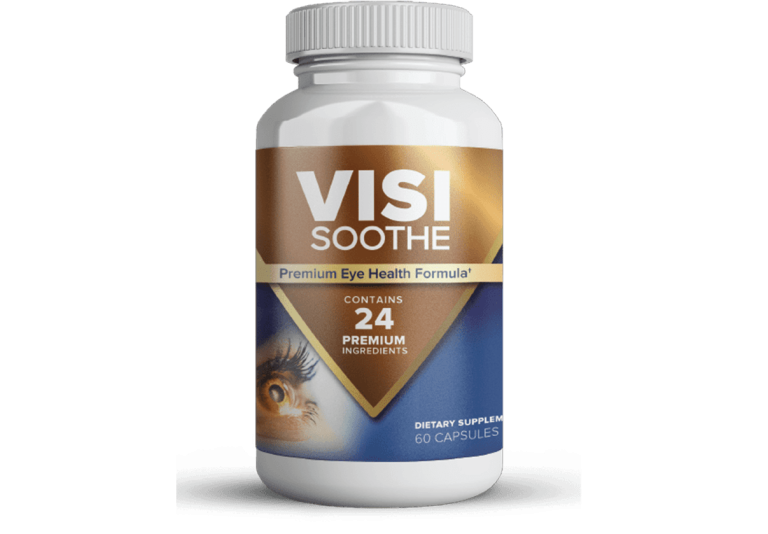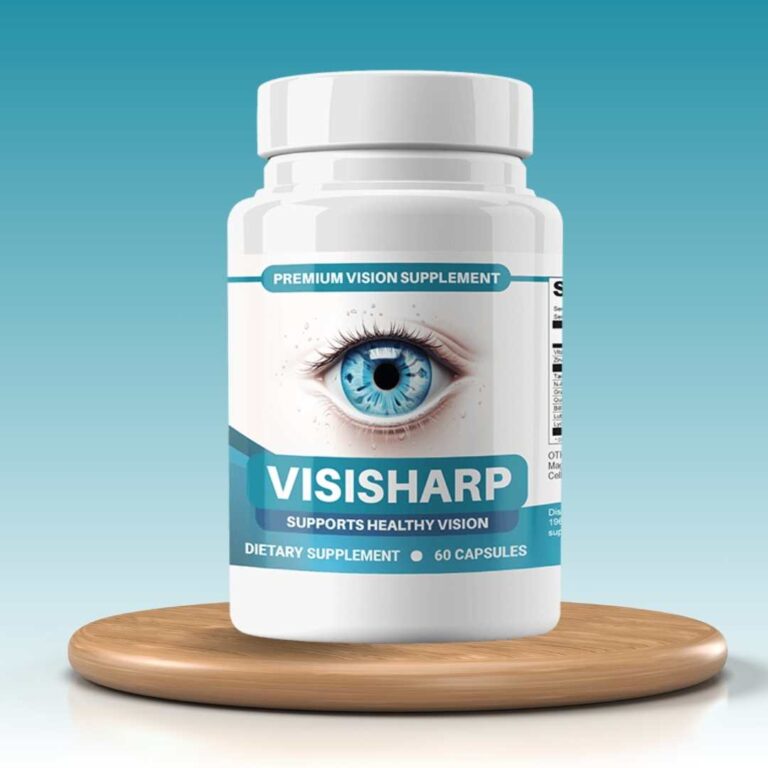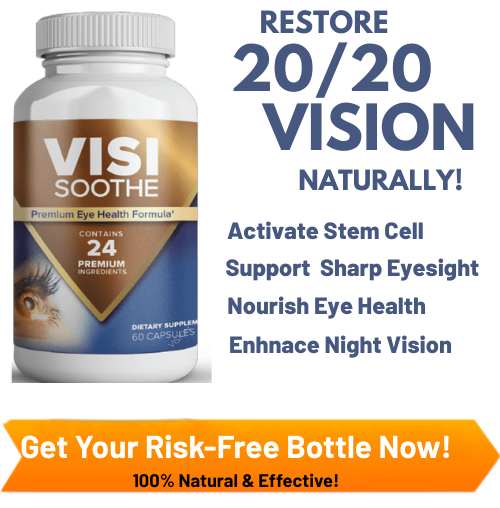As we age, protecting our eyesight is a primary concern for maintaining our quality of life. A common question we hear is, "Can vitamins really help protect my vision?" The answer, confirmed by leading health authorities and major scientific studies, is a resounding yes.
The key to supporting aging eyes lies in a specific group of powerful antioxidants and minerals. The most important nutrients include Vitamin C, Vitamin E, Lutein, Zeaxanthin, Zinc, and Omega-3 Fatty Acids.
This science-backed guide will explain what each of these nutrients does, how the famous AREDS2 formula works, and help you choose the best vision supplement for your needs.
The 6 Essential Vitamins and Nutrients for Senior Eye Health

Decades of research have identified a core group of nutrients that play a vital role in the structure and protection of the human eye, especially against age-related conditions like Macular Degeneration (AMD) and cataracts.
1. Lutein & Zeaxanthin
Often called "internal sunglasses," these two carotenoids are concentrated in the macula (the central part of your retina). They are critical for filtering out damaging high-energy blue light and neutralizing harmful free radicals that lead to oxidative stress.
2. Vitamin C
As one of the most powerful antioxidants in the body, Vitamin C is essential for protecting the eye's lens and retina from oxidative damage. It plays a significant role in lowering the risk of developing cataracts.
3. Vitamin E
Working in tandem with Vitamin C, Vitamin E is another crucial antioxidant that protects the delicate fatty acids in the retina from being damaged. It is a core component of the AREDS2 formula for its proven protective effects.
4. Zinc
This mineral is a vital "helper" that enables Vitamin A to create a pigment called melanin, which protects the eye. Zinc is highly concentrated in healthy eyes, but levels can decline with age.
5. Omega-3 Fatty Acids (DHA & EPA)
Omega-3s are critical for maintaining the structural integrity of retinal cells. They also have potent anti-inflammatory properties and are highly beneficial for preventing and managing the symptoms of dry eye syndrome.
6. Vitamin A
Essential for good vision, Vitamin A helps us see in low light by forming a protein called rhodopsin. While deficiency is rare, ensuring adequate intake is key for overall ocular function.
Food vs. Supplements: Getting the Nutrients You Need
A healthy diet is the foundation of eye health. However, achieving the high, therapeutic doses of nutrients used in the AREDS2 study from food alone can be difficult.
- Best Food Sources: Focus on eating dark leafy greens (spinach, kale), colorful fruits and vegetables (citrus, bell peppers), fatty fish (salmon, tuna), and nuts/seeds.
- The Role of Supplements: Supplements provide a reliable way to ensure you are getting the potent, clinically-proven levels of these key nutrients needed for maximum protection.
But with so many options, how can you be sure what you're buying is effective? The key is learning to decode the "Supplement Facts" panel on the bottle. To help you become a confident consumer, we've created a complete walkthrough on how to read an eye supplement label. This guide will teach you how to spot quality ingredients and avoid common red flags.

Top 3 Recommended Vision Supplements for Seniors in 2025
Navigating the supplement market can be confusing. We have reviewed several leading comprehensive formulas based on their ingredient profile, scientific alignment, and user feedback to help you make an informed choice.
#1. VisiSoothe — Best Overall Comprehensive Formula
Our top recommendation is VisiSoothe due to its robust, all-in-one formula. It starts with the core AREDS2 nutrients as its foundation and then enhances it with a broad spectrum of over 20 additional vitamins, minerals, and plant extracts known for their antioxidant power.
This comprehensive approach is ideal for seniors who want to target every aspect of eye health—from macular protection and lens clarity to reducing eye strain—with a single, powerful daily supplement.
- Best for: Seniors seeking a complete, multi-ingredient formula for maximum support.
- Key Feature: Combines AREDS2 nutrients with a 24-ingredient proprietary blend.
- Click Here to Learn More on the VisiSoothe Official Website
#2. VisiSharp — Strong Foundational Support
VisiSharp is another excellent choice that delivers a potent dose of essential vitamins and antioxidants. Its formula is designed to provide strong foundational support for vision health, focusing on protecting the eyes from inflammation and environmental factors. With core ingredients like Vitamin A and Zinc, it's a reliable supplement for daily maintenance.
- Best for: Individuals looking for strong, targeted antioxidant and vitamin support.
- [Check for VisiSharp on its Official Website]
#3. EyeFortin — Excellent for Eye Strain and Fatigue
EyeFortin is formulated to support healthy blood circulation to the eyes and provide nourishment to combat visual fatigue. This makes it particularly well-suited for individuals who spend significant time on digital screens or notice their eyes feel tired and strained.
- Best for: Seniors who experience frequent digital eye strain or tired eyes.
- Check for EyeFortin on its Official Website
Final Words on Protecting Your Vision
Protecting your eyesight as you age requires a proactive approach. A diet rich in eye-healthy foods, combined with a high-quality supplement built around the scientifically-backed AREDS2 formula, is the most effective strategy for nourishing your eyes from within. Always consult with your healthcare provider or ophthalmologist before beginning any new supplement regimen to ensure it is the right choice for you.
Disclaimer: The information presented in this blog post is intended for informational purposes only and should not be considered medical advice. While we strive to provide accurate and up-to-date information, it is not a substitute for professional medical guidance. Always consult with a qualified healthcare professional before making any decisions related to your health or treatment.
We strongly encourage you to seek the advice of a physician or other qualified healthcare provider with any questions you may have regarding a medical condition or treatment. Never disregard professional medical advice or delay seeking treatment because of something you have read in this blog post.
You Might Also Like





